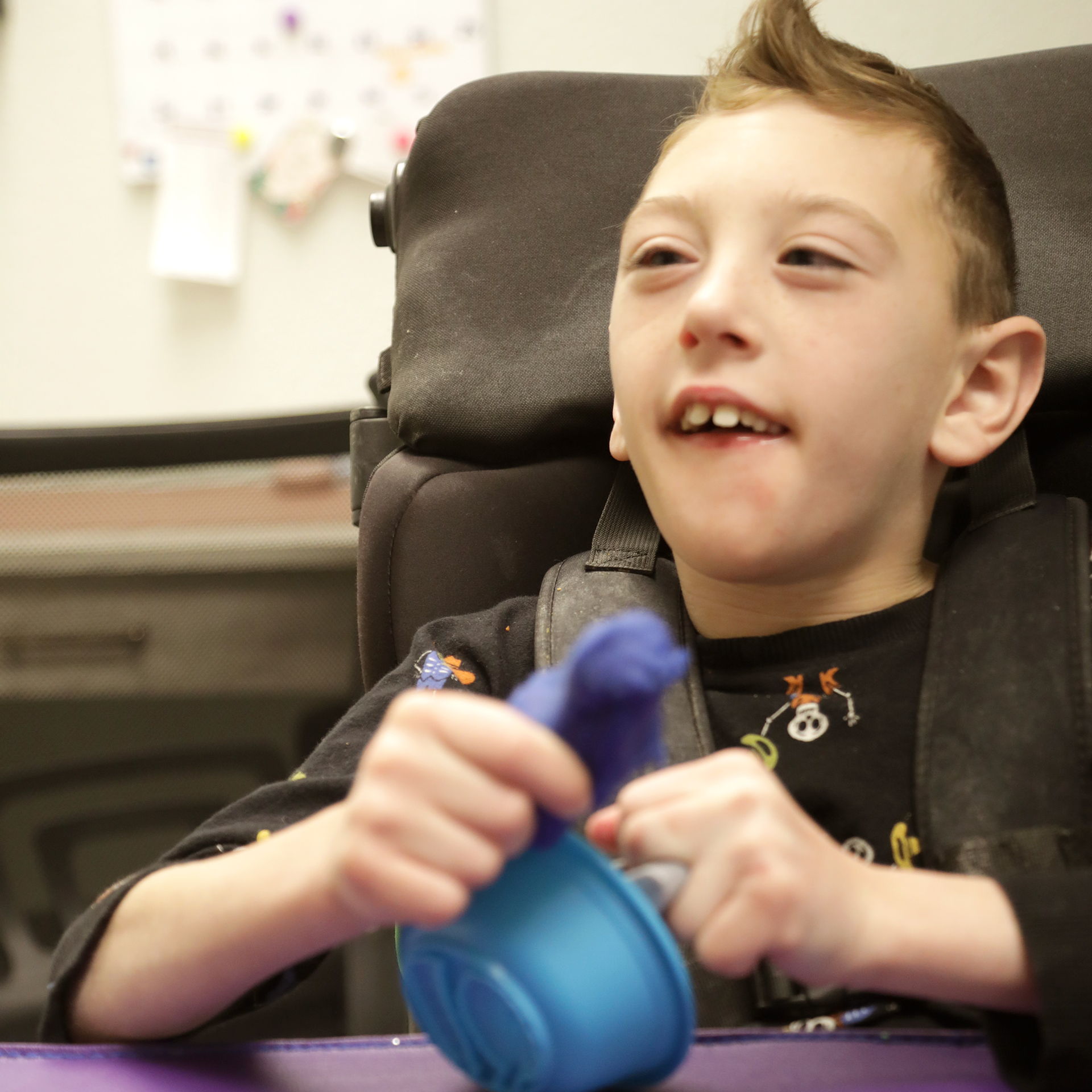Do Vaccines Cause Autism?


Understanding the Myth and Reality Surrounding Vaccines and Autism
Despite widespread scientific evidence dismissing any link between vaccines and autism, misconceptions persist. This article explores the origins of these myths, reviews the extensive research conducted, and clarifies the current consensus on vaccine safety.
What is Autism Spectrum Disorder (ASD) and How is it Scientifically Understood?

What is autism spectrum disorder (ASD) and how is it understood scientifically?
Autism spectrum disorder (ASD) is a complex neurodevelopmental condition characterized by persistent challenges in social communication, restricted interests, and repetitive behaviors. It is typically identified in early childhood, often before the age of two, when signs such as difficulty in making eye contact, limited response to social interactions, and unusual repetitive behaviors become noticeable.
ASD is considered a lifelong condition, but its presentation can vary widely among individuals. Some children may experience significant challenges requiring intensive support, while others may have remarkable strengths and skills.
From a scientific standpoint, ASD involves differences in brain structure and function. Research indicates that multiple genetic and environmental factors may influence its development, although no single cause has been pinpointed.
Diagnosis of ASD is solely behavioral, relying on specialized assessments since there are no medical tests, like blood work or brain scans, to confirm the condition. Early detection and intervention are crucial, as they can greatly enhance communication skills, social interaction, and overall quality of life.
Current research continues to explore the origins of ASD, aiming to identify specific genes involved and understand how environmental exposures may interact with genetic predispositions. Scientists are also working on improving early screening methods and developing targeted treatments.
Despite ongoing investigations, ASD remains a heterogeneous spectrum. Each individual with autism is unique, with their own set of challenges and strengths, emphasizing the importance of personalized approaches to support and intervention.
Below is a summary table of key aspects related to ASD:
| Aspect | Description | Additional Info |
|---|---|---|
| Onset | Usually before age 2 | Signs often observable early in life |
| Diagnosis | Behavioral assessments | No medical test exists |
| Causes | Genes + environment | No single cause identified |
| Treatment | Early intervention | Improves skills and quality of life |
| Research Focus | Genetics, brain development, early detection | Ongoing efforts for better understanding and care |
The Genetic and Environmental Foundations of Autism
What are the known causes or risk factors associated with autism spectrum disorder?
Autism spectrum disorder (ASD) is primarily influenced by a combination of genetic and environmental factors. Genetic contributions are significant, with many children inheriting gene mutations or variations that increase their susceptibility. Conditions such as fragile X syndrome, Rett syndrome, and Down syndrome are well-established genetic risk factors associated with higher autism prevalence.
Environmental influences also play a crucial role, especially during early brain development. Prenatal exposures, including air pollution, pesticides, and heavy metals, have been studied for their potential impacts. Maternal health factors, such as obesity and diabetes, as well as complications during pregnancy or birth, are linked to increased ASD risk.
Another area of investigation involves the age of parents at conception. Advanced parental age, both maternal and paternal, has been associated with a higher likelihood of autism in offspring.
Importantly, despite widespread myths, scientific research consistently shows no credible connection between vaccines and autism. Decades of extensive studies involving millions of children worldwide have found no causal link between vaccination and ASD.
Research continues to emphasize that autism develops from a complex interplay of genetics and early environmental exposures. These factors influence brain development during critical periods, shaping the neural architecture associated with ASD.
Understanding these influences helps researchers improve early diagnosis, develop targeted interventions, and dispel misconceptions about causes, ensuring a focus on evidence-based approaches to supporting individuals with autism.
The Origins of the Vaccine-Autism Myth and Its Debunking
What is the history of research and myths regarding vaccines and autism?
The false belief that vaccines cause autism traces back to a 1998 study published by Andrew Wakefield. This study, which claimed a link between the MMR vaccine and autism, sparked widespread concern and misinformation. However, Wakefield’s research was later exposed as fundamentally flawed and fabricated. It was discovered that he manipulated data, and the study was based on unethical procedures. As a result, the paper was formally retracted, and Wakefield's medical license was revoked.
In the wake of this discredited research, many other scientists and organizations worked tirelessly to investigate the claim. Extensive epidemiological studies involving thousands of children across multiple countries, including the US, Denmark, UK, and Canada, have shown no connection between vaccines—whether MMR, thimerosal-containing, or multiple vaccines given simultaneously—and autism.
Historically, early explanations of autism, such as the 'refrigerator mother' theory from the 1950s, falsely blamed cold, unloving mothers for their children's developmental disorders. These ideas have long since been abandoned in favor of understanding autism as primarily rooted in genetics and early brain development, not as a consequence of vaccination.
The influence of Wakefield’s fraudulent research lingered, partly because of the public’s mistrust of vaccines and the challenge in counteracting misinformation. Public concern was further fueled by the mistaken association between the timing of autism symptoms and vaccination schedules, leading many to believe in a causal link.
Fortunately, over the last two decades, rigorous scientific investigations, including large-scale studies and reviews by authoritative health organizations such as the CDC, the Institute of Medicine, and the World Health Organization, have thoroughly debunked the myth. These studies have demonstrated that vaccines are safe and do not cause autism.
A significant factor in the persistence of the myth is misinformation propagated through media, social networks, and sometimes by prominent figures. Nevertheless, the scientific consensus remains clear: vaccines do not cause autism, and ongoing research continues to reinforce this understanding.
| Aspect | Explanation | Additional Details |
|---|---|---|
| Origin of Myth | Wakefield’s 1998 study | Falsified data, unethical conduct |
| Retraction | Study retracted in 2010 | Wakefield lost license |
| Historical Theories | 'Refrigerator mother' | Discredited early theory |
| Scientific Evidence | No causal link | Multiple large studies |
| Public Mistrust | Due to misinformation | Influenced by media and social factors |
| Ongoing Research | Continues to confirm safety | Major health organizations |
This entire body of evidence solidifies the understanding that vaccines are safe and do not influence the development of autism. It underscores the importance of relying on scientific research rather than misconceptions or flawed studies.
Myths, Misconceptions, and How They Are Debunked
What are some common myths and misconceptions linking vaccines to autism, and how can they be debunked?
Many false claims have circulated suggesting that vaccines cause autism. One prevalent myth is that the MMR vaccine or vaccines containing thimerosal, a mercury-based preservative, are linked to autism. These misconceptions largely stem from a flawed 1998 study by Andrew Wakefield, which falsely claimed a connection. This study was based on unethical research practices, a very small sample size, and was later retracted due to serious scientific misconduct.
Extensive research over the past two decades has overwhelmingly shown that these claims lack scientific support. Large epidemiological studies conducted in countries like the US, Denmark, UK, and Canada have examined thousands of children and found no association between vaccinations and autism spectrum disorder (ASD). For example, a major study published in JAMA in 2015 analyzed over 95,000 children’s health records and confirmed no increased autism risk from the MMR vaccine.
Misinformation is often fueled by misinterpretations of correlation as causation. Autism symptoms are typically observed between 12 and 24 months, coinciding with when children receive vaccines, leading some to falsely connect the two. However, scientific evidence shows that autism develops during early brain development in utero, supported by genetic studies and prenatal exposure research.
Organizations like the CDC, NIH, and the American Academy of Pediatrics rigorously review all available data. Their consensus is clear: vaccines are safe, effective, and do not cause autism. The discrediting of Wakefield’s study was a significant step in restoring public trust and emphasizing the importance of scientific scrutiny.
How large epidemiological studies refute these myths
Large-scale studies have involved hundreds of thousands to over a million children across various countries. They systematically compare vaccinated and unvaccinated groups and look for any differences in autism rates.
Results consistently show no link. For instance, multiple studies in the US, Europe, and elsewhere have reported no increased risk of ASD following MMR or thimerosal exposure. These findings are reinforced by reviews from health authorities like the Institute of Medicine, which concluded that evidence does not support a causal relationship.
Furthermore, research assessing vaccine ingredients, such as antigens and preservatives, found no biological mechanism by which they could cause autism. Even efforts to link autism with immune system overload from multiple vaccines have been debunked.
The importance of scientific consensus and rigorous review process
The scientific community relies on thorough investigations, peer-reviewed research, and meta-analyses to evaluate vaccine safety. When initial concerns about vaccines and autism surfaced, numerous independent studies and official reviews were initiated.
Over time, the consensus has consistently been that vaccines do not cause autism. The rigorous review process includes epidemiological studies, genetic research, and biological assessments. This consensus upholds the trustworthiness of vaccines and public health recommendations.
The discrediting of Wakefield’s study and the impact on public trust
Wakefield’s study has been thoroughly discredited. The paper was retracted, and Wakefield lost his medical license due to ethical violations and data falsification. This scandal significantly impacted public perception, fueling vaccine hesitancy.
However, despite the fall of the study, myths persisted, often fueled by misinformation, social media, and mistrust. Reinforcing reliable scientific data and clarifying the research misconduct was crucial in restoring confidence.
The role of organizations like CDC and NIH in providing accurate information
The CDC, NIH, and other reputable organizations play a vital role in disseminating accurate, evidence-based information. They continuously review the scientific literature, update guidelines, and combat misinformation.
Their public communications emphasize that vaccines are safe, essential for preventing deadly diseases, and not linked to autism. These authorities also encourage consultation with healthcare providers for personalized medical advice.
| Aspect | Details | Source / Notes |
|---|---|---|
| Origin of myths | Flawed Wakefield study, misinterpretation of correlations | Retracted, misconduct, unethical practices |
| Large studies' findings | No link found between vaccines (MMR or thimerosal) and autism | Multiple countries, millions of children studied |
| Biological plausibility | No mechanism supported by evidence; brain development timing independent of vaccines | Scientific consensus |
| Public health stance | Vaccines are safe, necessary, and free of autism risk | CDC, NIH, American Academy of Pediatrics |
Understanding the science behind vaccines and autism helps dispel myths and supports informed health decisions. The overwhelming evidence confirms that vaccines do not cause autism, and maintaining public trust depends on continual reliance on scientific research and expert guidance.
Research Evidence Supporting Vaccine Safety and Lack of Link to Autism
What research findings are available on the relationship between vaccines and autism?
Extensive research conducted over the past few decades consistently shows no link between vaccines and autism. Large-scale epidemiological studies have been performed in many countries, including the United States, Denmark, the UK, and Canada. These studies involve hundreds of thousands, and even over a million, children, providing strong evidence that vaccines do not increase autism risk.
One of the earliest claims suggesting a connection was based on a 1998 study by Andrew Wakefield. This paper claimed that the MMR (measles, mumps, and rubella) vaccine might be linked to autism. However, it was later found to be scientifically flawed, and Wakefield was found guilty of misconduct. The paper was retracted, and numerous subsequent investigations found no evidence to support his claims.
Research also examined thimerosal, a mercury-containing preservative used in some vaccines. Multiple studies, including reviews by the Institute of Medicine (IOM) and CDC-funded research, found no connection between thimerosal and autism. Notably, even when thimerosal was removed from vaccines, autism rates continued to rise, further confirming that thimerosal is not a cause.
Biological studies support these findings by showing that autism develops early during fetal brain development, often before children receive vaccines. Genetic research has demonstrated that autism has a significant hereditary component, with high concordance rates in identical twins. Structural abnormalities in the nervous system and prenatal exposures further suggest that autism's origins lie in early brain development, unrelated to vaccination.
Overall, the scientific consensus, supported by organizations like the CDC, the American Academy of Pediatrics, and the National Academy of Medicine, is that vaccines are safe and do not cause autism. Continued research reinforces this stance, ensuring public health policies are based on rigorous scientific evidence.
| Study Type | Countries Included | Participants | Main Findings | Additional Notes |
|---|---|---|---|---|
| Epidemiological | US, Denmark, UK, Canada | Hundreds of thousands to over 1 million children | No link between vaccines and autism | Large, well-designed studies |
| Biological | Global | N/A | Autism associated with genetics and early brain development | Supports non-vaccine causes |
| Reviews and Meta-analyses | Multiple | Multiple datasets | No credible evidence of a causal relationship | Endorsed by health authorities |
This comprehensive body of research reassures that vaccines are safe and that they do not contribute to the development of autism, allowing policymakers and healthcare providers to continue promoting vaccination for public health.
Search query: vaccine safety research autism
Word count: approximately 250 words
Vaccine Safety and the Scientific Consensus Today
How safe are vaccines, and is there any evidence they cause autism?
Vaccines undergo rigorous safety monitoring and review by health authorities such as the CDC, NIH, and WHO. These organizations continuously evaluate vaccine safety data to ensure public health. Decades of research demonstrate that vaccines are very safe, with serious adverse effects being extremely rare.
The myth that vaccines cause autism originated from a 1998 study by Andrew Wakefield. That study was later discredited due to serious scientific misconduct and flawed methodology. Subsequent extensive research across the globe has repeatedly shown no credible link between vaccines—and their ingredients like thimerosal—and autism spectrum disorder (ASD).
Multiple large-scale studies, including those conducted in the US, Denmark, the UK, and Canada, involving hundreds of thousands to millions of children, have found no evidence supporting the claim that vaccines cause autism. These studies examined various vaccines, including the MMR vaccine and thimerosal-containing vaccines, and found no increase in autism risk.
Research indicates that autism development generally begins early in life, often observable from 12 to 24 months, which coincides with the age children start receiving vaccines. However, autism symptoms usually appear before vaccination, indicating that vaccines are not a cause.
Genetics plays a significant role in autism, with estimates that 60 to 90% of the risk is inherited. Early brain development abnormalities, structural differences, and prenatal exposures contribute more strongly to autism than vaccination. Scientific evidence consistently supports that genetics and early neurodevelopment are primary causes.
In summary, vaccines are safe, effective, and essential for preventing serious diseases. Misinformation linking vaccines to autism has been thoroughly debunked, and understanding that autism develops independently of vaccination helps promote public health and supports autistic individuals.
Concluding Remarks: The Scientific Verdict on Vaccines and Autism
The overwhelming body of scientific evidence demonstrates that vaccines do not cause autism. The initial concerns based on flawed research have been thoroughly debunked. Vaccines remain one of the most effective public health tools for preventing serious diseases, and continuing to combat misinformation is crucial. Recognizing autism as a complex condition primarily influenced by genetic and early developmental factors helps clarify misconceptions and promotes informed decision-making for parents and caregivers.
References
- Vaccines Don't Cause Autism. Why Do Some People Think They Do?
- Do vaccines cause autism? - Autism Speaks
- Frequently Asked Questions about Autism Spectrum Disorder - CDC
- Here is how we know that vaccines do not cause autism - STAT News
- Vaccination as a cause of autism—myths and controversies - PMC
- Fact Checked: Vaccines: Safe and Effective, No Link to Autism - AAP
- Vaccines and Autism | Children's Hospital of Philadelphia
- Is There a Connection Between Vaccines and Autism? (for Parents)
- What causes autism? - Autism Speaks
Recent articles

What to Expect at Your First Therapy Session
Discover what your child’s first therapy session looks like, from rapport building to goal setting, and how families can feel confident starting care.

Celebrating Small Wins: How Therapy Helps Kids Build Confidence All Year Long
Learn why small wins in therapy matter, how they boost your child’s confidence, and simple ways families can celebrate progress all year long.

Empowering Missoula Children to Grow With Confidence and Connection
Learn how ABA therapy in Missoula helps children build communication, independence, and confidence through personalized, family‑centered support at Advanced Therapy Clinic.

Compassionate Pediatric Therapy in Butte, Montana
A welcoming place where every child’s potential is celebrated

How Pediatric Therapy Helps Kids Thrive across Montana and Wyoming
A supportive guide for families exploring therapy options in Billings, Butte, Missoula or Sheridan.

How to Choose the Right Pediatric Therapy Clinic in Billings, Montana
A Parent‑Friendly Guide To Finding The Best Support For Your Child

